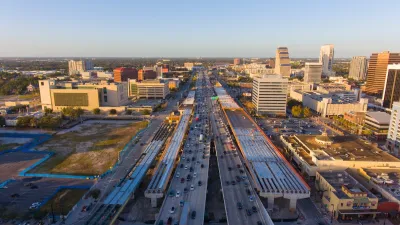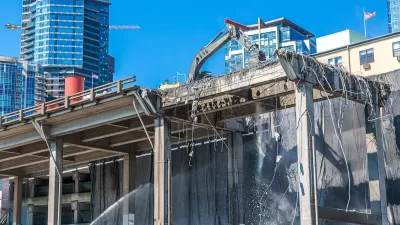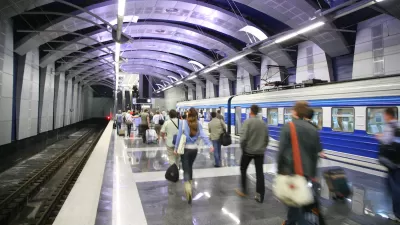It's an article of faith among many that GM, Firestone, and Standard Oil destroyed the streetcar networks of the early 20th century. Stephen Smith suggests that Progressive Era and New Deal planners and politicians should shoulder more of the blame.
Smith writes that the General Motors story "has little basis in reality. A cursory look at transportation history shows that motorization was already well underway by the time National City Lines – the holding company backed by GM, Firestone Tire, and Standard Oil, among others – started buying up transit companies in 1938. Other factors, often championed by progressives, had already drove the industry into decline and it was really only a matter of time before buses took over. Although General Motors and other car-centric companies were certainly lobbying the government in their favor, the progressive tendency to vilify private transit companies had already turned the public against streetcars, and local governments were already heavily predisposed towards motorization by the late '30s."
Thanks to Stephen Smith
FULL STORY: The Great American Streetcar Myth

Maui's Vacation Rental Debate Turns Ugly
Verbal attacks, misinformation campaigns and fistfights plague a high-stakes debate to convert thousands of vacation rentals into long-term housing.

Planetizen Federal Action Tracker
A weekly monitor of how Trump’s orders and actions are impacting planners and planning in America.

In Urban Planning, AI Prompting Could be the New Design Thinking
Creativity has long been key to great urban design. What if we see AI as our new creative partner?

King County Supportive Housing Program Offers Hope for Unhoused Residents
The county is taking a ‘Housing First’ approach that prioritizes getting people into housing, then offering wraparound supportive services.

Researchers Use AI to Get Clearer Picture of US Housing
Analysts are using artificial intelligence to supercharge their research by allowing them to comb through data faster. Though these AI tools can be error prone, they save time and housing researchers are optimistic about the future.

Making Shared Micromobility More Inclusive
Cities and shared mobility system operators can do more to include people with disabilities in planning and operations, per a new report.
Urban Design for Planners 1: Software Tools
This six-course series explores essential urban design concepts using open source software and equips planners with the tools they need to participate fully in the urban design process.
Planning for Universal Design
Learn the tools for implementing Universal Design in planning regulations.
planning NEXT
Appalachian Highlands Housing Partners
Mpact (founded as Rail~Volution)
City of Camden Redevelopment Agency
City of Astoria
City of Portland
City of Laramie





























